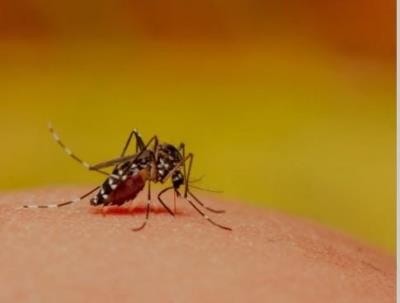(MENAFN- IANS)

London, March 3 (IANS) Nearly three quarters of a million fewer global cases of dengue - 7,50,000 - occurred in 2020, which could be linked to Covid-19 disruptions limiting human mobility and contact, according to a new study published in Lancet Infectious Diseases.
Researchers from the London School of Hygiene and Tropical Medicine (LSHTM), analysed the monthly dengue cases from the World Health Organization (WHO) Weekly reports between 2014 to 2020 from 23 countries - 16 in Latin America and seven in South East Asia, the main regions where dengue is endemic, as well as climate data on air temperature, relative humidity and precipitation.
They found a strong association between school closures and declines in non-residential trips, such as shopping or using public transport, due to Covid and reduced risk of dengue transmission.
This indicates that places such as schools and commonly visited public areas could be dengue transmission hot spots and play a key role in spreading the disease.
'Currently dengue control efforts are focused on or around the households of people who get sick. We now know that, in some countries, we should also be focusing measures on the locations they recently visited to reduce dengue transmission,' said Oliver Brady, Associate Professor and MRC Fellow at LSHTM.
'For all the harm it has caused, this pandemic has given us an opportunity to inform new interventions and targeting strategies to prevent dengue,' he added.
Dengue case numbers suddenly began to decline in April 2020 in many countries, following the introduction of public health and social measures targeting the spread of Covid and the resulting change in human movement and shift to more time spent in residential places.
In 2020, dengue cases decreased by 40.2 per cent in Latin America and 58.4 per cent in South East Asia, with just over two million cases recorded in the Americas and South East Asia in 2020.
However, unravelling the impacts of Covid disruption is complex as 2019 saw the largest global dengue outbreak in history, with more than 5.2 million cases recorded in the Americas and South East Asia region.
This led to high levels of immunity which would also be expected to reduce dengue cases in 2020, the researchers said.
By combining public health data and social measures due to the pandemic, the team showed that reduced time spent in public areas was closely associated with reduced dengue risk.
This decrease in cases could also be attributed to reduced rates in people seeking treatment, a higher potential for misdiagnosis and reduced availability for laboratory testing for dengue could result in misdiagnosis.
The researchers acknowledge the limitations of this study, including lack of data on the different types of dengue, which can drive outbreaks, and the potential changes in dengue reporting resulting from Covid disruptions.
--IANS
rvt/svn/
MENAFN03032022000231011071ID1103792902
Legal Disclaimer:
MENAFN provides the information “as is” without warranty of any kind. We do not accept any responsibility or liability for the accuracy, content, images, videos, licenses, completeness, legality, or reliability of the information contained in this article. If you have any complaints or copyright issues related to this article, kindly contact the provider above.